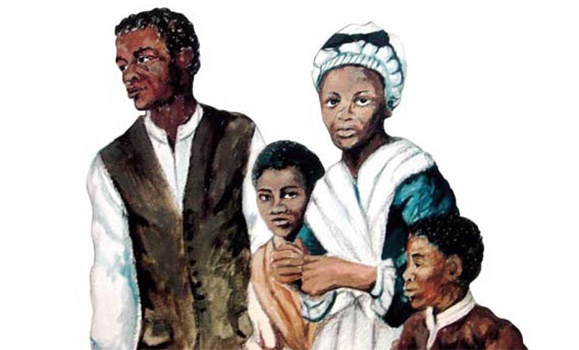A new Dalhousie course launching this winter will take students on a voyage through more than 400 years of African Nova Scotian history.
Dal prof Isaac Saney says the course will help fill a gap for students interested in studying the African experience in Nova Scotia — a topic that also holds broader national significance.
“The Black experience in Canada really begins in Nova Scotia,” says Dr. Saney, who designed and will teach the course next term.
With that in mind, the course begins in the early 1600s with the arrival of Mathieu da Costa in Nova Scotia. Historical records suggest Da Costa, who came to Nova Scotia with a group of European explorers, was the first known person of African descent to land in what is now Canada.
Waves of history
Students will explore the Black experience through a survey of some of the major waves and arrivals of people of African descent in the province over the centuries. These include the migration of Black Loyalists and refugees of the War of 1812 from the United States, as well as the arrival of slaves.
While slavery was far less widespread in Canada than in the U.S., Dr. Saney (who is also the director of Dal’s Transition Year Program) says its impact in Nova Scotia lasted well after it was outlawed in the British colonies in 1833.
“We’re going to look at the imprint it left on Nova Scotia society, particularly in how Blacks were perceived and the social and economic practices that were visited upon people of African descent,” he says.
The struggle of African Nova Scotians for equality, democratic rights and self-determination will be a key theme weaved throughout the course, which will also introduce students to a range of other topics, including the Black community’s relationship with the Mi’kmaq peoples, the role of the Church, and land-claims cases.
African Nova Scotian lawyer and activist Burnley “Rocky” Jones’s influence will loom particularly large in the course. Readings from a posthumously released autobiography of Dr. Jones, who died in 2013, will be assigned alongside more traditional scholarly texts and articles as a way to bring forth the first-person narrative of a Black person deeply involved in the community, says Dr. Saney.
Dr. Jones came of political age in the 1960s as the issue of civil rights assumed greater force in Canada, drawing much of its inspiration from south of the border, and he became a major leader in the movement in Canada from his home base in Halifax.
"He was able in a sense to articulate and combine with previous struggles in a Nova Scotian context what was unfolding in the U.S. with the civil rights movement,” says Dr. Saney.
Connecting past and present
The three-credit-hour course is being offered as part of the Black and African Diaspora minor program, launched this past September. Dr. Saney noticed that Dal was lacking a recurring course specifically dedicated to African Nova Scotian history and suggested it would be a natural fit for the minor.
Although the course will focus on acquainting students with the history of African peoples in Nova Scotia, Dr. Saney also hopes to use it as a springboard to discuss contemporary issues facing Black communities such as gun violence.
“I want to look at where the social and economic conditions of marginalization, disenfranchisement and despair came from.”
Interested in enrolling? The course is cross-listed in History and Canadian Studies as History 2280.03 and CANA 2280.03 respectively.

